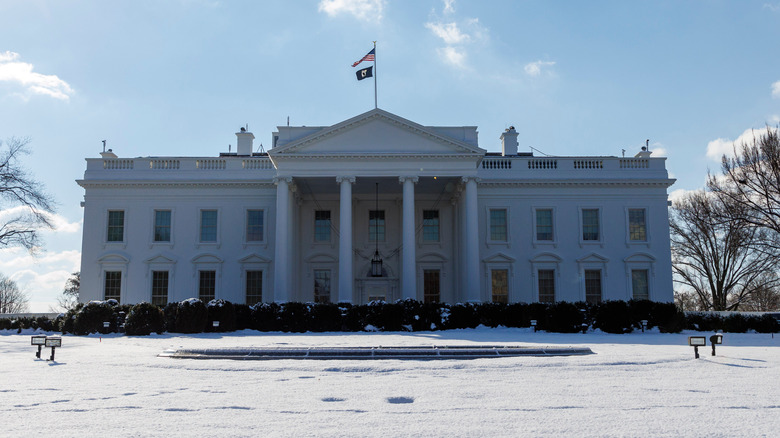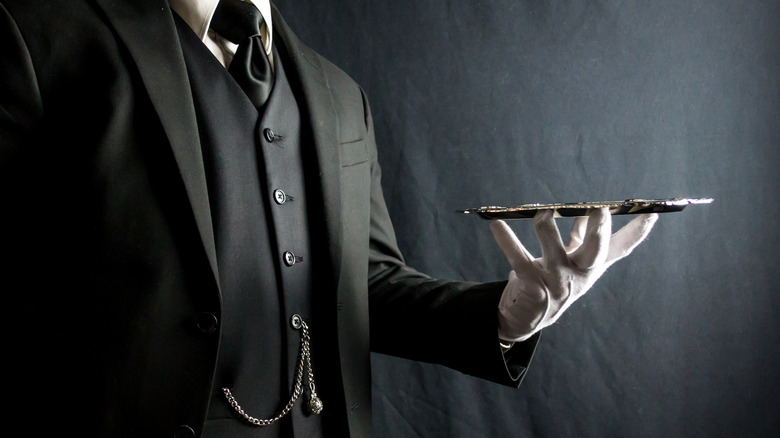How Historically Accurate Is The Butler?
Everyone knows the importance and far-reaching influence of the U.S. president. The position comes with the power to change the country's policies and drive change — whether good or bad. But few know the stories of the people who work alongside the president every day.
Lee Daniels' 2013 film, "The Butler," focuses on one of those stories — that of White House staff member Cecil Gaines. Gaines is based on a real former staffer, Eugene Allen, who worked at the White House for more than three decades (via History vs Hollywood). But the film isn't completely accurate with respect to Allen's life. The film fabricates a few details as it tries to capture both working in the White House and the history of the Civil Rights movement.
In "The Butler," Cecil Gaines has two sons. One dies in the Vietnam War, leading to a confrontation with President Richard Nixon, and the other is involved with the Black Panthers and pushing for civil rights reform. But according to History vs Hollywood, Eugene Allen only had one son, Charles. He did fight in the Vietnam War but survived to work for the State Department.
Cecil's wife, Gloria, is depicted as an alcoholic and has an affair in the film. But neither of those things was true of Eugene's wife, Helene, who passed away in 2008 according to Washington Post.
Who was The Butler about?
In the film, Gaines starts at the White House as a butler after the White House approaches him for the position. But in reality, Allen was the one who contacted the White House about an open position. According to Washington Post, he worked in lower staff positions for years prior to being promoted to maître d'.
At the end of the film, the fictional Cecil Gaines retires from his position after realizing during a state dinner he has been subservient to whites in his time serving the White House. But the real Eugene Allen did not retire because of the dinner (History vs Hollywood).
Those involved with the film have said it wasn't supposed to document every aspect of Allen's life. The movie includes some real moments, such as invitations to state dinners and conversations with the presidents and their wives. The Gaines family, however, is fictionalized, and representative of more than just the Allen family's individual experiences (CBS News).

